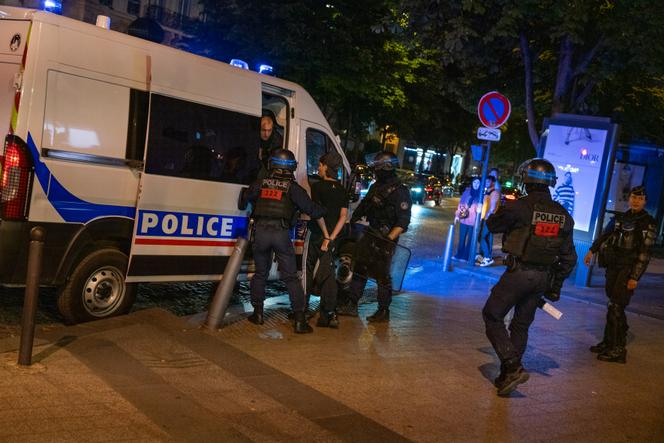


They were arrested, along with hundreds of others, during the nights of rioting that followed the death of Nahel M., who was fatally shot by police in Nanterre on June 27. Charged with participation in a group with a view to the preparation of violence or damage, rebellion, robbery in collusion, or deliberate violence against police officers, they were swiftly brought to court but requested a delay before being tried. In the meantime, most of them have been remanded in custody.
More than a month has gone by, and here they are, in the early days of August, entrenched in the dreadful hearings of fast-track trials, the only ones running at full speed in the deserted courthouses in and around Paris.
But the context has changed: Concern and political pressure have eased, and the emergency procedures that were established – a memorandum from Justice Minister Eric Dupond-Moretti, published on June 30, called for a "rapid, firm and systematic" judicial response to the riots – are not all holding up to the judges' scrutiny.
On Thursday, August 3, 44-year-old Gilles O. entered the courtroom in Bobigny, northeast of the capital. A special education teacher, he was arrested in the northern Paris suburb of Saint-Denis on the night of June 30, along with Lassana D., 36, a former soldier turned truck driver, and Abraham Z., 26, a construction worker, both of whom also appeared. All three were standing a few dozen meters from a police station targeted by the rioters. Not far away, an annex of the town hall was ablaze. The police saw Gilles O. throw a firework as he fled. "Nahel, Nahel, the police kill!" he shouted at them as he was being arrested.
"I wanted to take part in a demonstration against police violence," said the teacher.
"At 1:20 am, right in the middle of the riots?" asked Youssef Badr, the presiding judge.
"I've been protesting for years," he replied.
"But why the fireworks?"
"I made the unfortunate choice to take it. But I didn't fire it."
Lassana D. confirmed that he was also there only to protest against police violence. "I have resentment against the police, I'm fed up with getting checked all the time." The prosecutor, who charged the three defendants with participation in a group, refusal to provide fingerprints, and contempt, was seeking a sentence of 10 to 12 months with an electronic bracelet. The court ruled in favor of an eight-month suspended sentence and acquittal on the charge of contempt.
The next day, it was the same courtroom, but different participants. Hassan A., Mohamed H. and Mehdi H. looked as if they had stepped straight out of the film Les Misérables by Ladj Ly. The youngest was barely 18, and the other two were 20 and 22.
You have 68.75% of this article left to read. The rest is for subscribers only.
